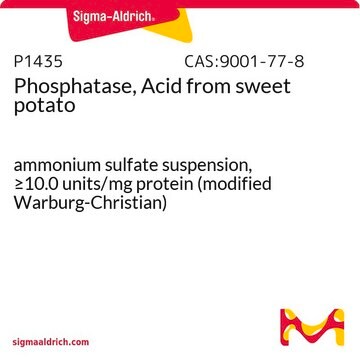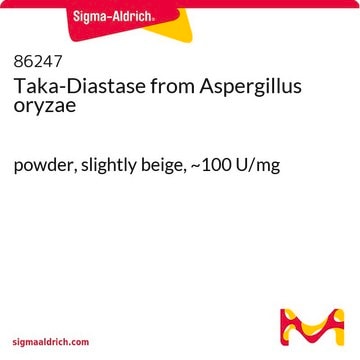SRE0048
Phosphatase, Acid from potato
Suitable for manufacturing of diagnostic kits and reagents
Synonym(s):
Phosphatase, Acid from potato, (Orthophosphoric-monoester phosphohydrolase acid optimum), Acid Phosphatase from potato
Sign Into View Organizational & Contract Pricing
All Photos(1)
About This Item
Recommended Products
Quality Level
form
lyophilized powder
specific activity
3.0-10.0 unit/mg solid
shipped in
wet ice
storage temp.
−20°C
SMILES string
O(CC(O)C)CC#C
InChI
1S/C6H10O2/c1-3-4-8-5-6(2)7/h1,6-7H,4-5H2,2H3
InChI key
GZCWLCBFPRFLKL-UHFFFAOYSA-N
Looking for similar products? Visit Product Comparison Guide
General description
Acid phosphatase from potato is a phosphomonoesterase, which can appear in multiple molecular forms of similar molecular mass but with different isoelectric points.
Application
Acid phosphatase from potato has been used in a study to assess the potential allergenicity of novel gene products. It has also been used in a study to remove eight phosphate groups from casein at a pH of 7.0.
Biochem/physiol Actions
Acid phosphatases (APase) are a family of enzymes that non-specifically catalyze the hydrolysis of monoesters and anhydrides of phosphoric acid to produce inorganic phosphate at an optimum pH of 4 to 7.
Unit Definition
One unit will hydrolyze 1.0 μmole of p-nitrophenyl phosphate per min at pH 4.8 at 37 °C.
Signal Word
Danger
Hazard Statements
Precautionary Statements
Hazard Classifications
Resp. Sens. 1
Storage Class Code
11 - Combustible Solids
WGK
WGK 3
Flash Point(F)
Not applicable
Flash Point(C)
Not applicable
Choose from one of the most recent versions:
Already Own This Product?
Find documentation for the products that you have recently purchased in the Document Library.
Customers Also Viewed
E W Bingham et al.
Biochimica et biophysica acta, 429(2), 448-460 (1976-04-08)
Potato acid phosphatase (EC 3.1.3.2) was used to remove the eight phosphate groups from alphas1-casein. Unlike most acid phosphatases, which are active at pH 6.0 or below, potato acid phosphatase can catalyze the dephosphorylation of alphas1-casein at pH 7.0. Although
Sishuo Cao et al.
Regulatory toxicology and pharmacology : RTP, 63(2), 181-187 (2012-04-17)
With the development of genetically modified crops, there has been a growing interest in available approaches to assess the potential allergenicity of novel gene products. We were not sure whether Cry1C could induce allergy. We examined the protein with three
H N Fernley et al.
The Biochemical journal, 107(2), 279-283 (1968-03-01)
1. A purified preparation of alkaline phosphatase from calf-intestinal mucosa was phosphorylated by (32)P-labelled PP(i) at a serine residue on the enzyme. Under the conditions employed, up to 0.15mum-labelled sites were obtained from 1mum-[(32)P]PP(i). 2. The phosphorylated enzyme was labile
Our team of scientists has experience in all areas of research including Life Science, Material Science, Chemical Synthesis, Chromatography, Analytical and many others.
Contact Technical Service











